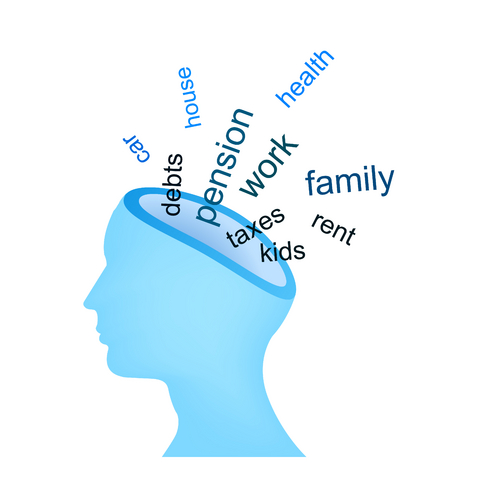COMPASSION ISN’T OUTSIDE OF YOU
Compassion isn’t something foreign to our minds and our hearts. It isn’t something “out there” that we have to get or acquire. And, it isn’t something that we need to learn (although we may need to remember it at times).
Granted, there are times when we feel that to find even the smallest compassionate impulse for certain patients requires of us the most Herculean effort. There are also times when, either due to the amount of stress that we’re experiencing, or the number of patients we’re dealing with, it doesn’t feel like there’s “…enough to go around.” In those instances, what can we do?
NO SUCH THING AS COMPASSION FATIGUE?
While I’ve shared my views on compassion fatigue (or a lack of it) on this site as well as on sites like LinkedIn, I’m not going into that here. Even if you do experience what you would term compassion fatigue, that’s not a place where you want to be, is it? Of course not! So, how to you maintain your compassionate presence while dealing with the challenges of providing care at the bedside?
FIVE INSTANT WAYS TO GENERATE COMPASSION
What serves us best at the bedside to bring our most compassionate self to our patients are tools and techniques that we can use NOW, HERE, and without effort.
1) The more present we are with our mind and less distracted by circumstances, the more easily we can attend to our patients. Therefore, the most immediate thing that we can do is to make sure that we are minimally distracted by our routine, shift, duties and such, and that we are focused solely on our patient as the object of our attention and compassionate intention. This state of minimal distraction is achieved by learning a method of bringing our mind back to the present moment, repeatedly, as we move through our day. One such method is through mindful meditation practice, based upon an awareness of maintaining an unaltered and spacious view of our mind.
2) Once we’ve settled our mind into the present and have directed our mind towards the person we’re caring for, the next most immediate way that we can generate a genuine compassionate presence is to remember that the person in the bed is no different from ourselves. Really, when you stop to reflect on it, it’s only through circumstances and conditions that they are “there” and we are “here.” Our patients are no different than we are in their desire to have happiness and to be free from suffering. So, when we encounter our patient(s), if the first thing that arises within our mind is “they are another me,” we’ll increase our ability to attend to their needs.
3) As we begin to see our patients as “another me,” we start to realize that although our happiness is vital to our ability to show up at the bedside, there are a lot more of others (them) than “me.” This understanding brings us to realize that our patients are, in certain ways, more important than we are. What?! That is, because there are so many of them and only one of me, our commitment to help others trumps our concerns about ourselves. This can a be a tough idea to grasp; give it time.
4) Imagine that with one breath, we could breath in the suffering of another, and on the out-breath give to them all of our happiness. Taking with the in-breath, giving with the out-breath. Breathing out benefit, breathing is suffering. Again, this may be a hard concept to wrap one’s mind around, especially when we consider how much of the time we spend trying to find our own happiness. This is an exercise in aspiration, that is, wishing that “if only” we could take on their suffering and give them our happiness, we would. No worries; I’ve been using this technique for years, as have countless others, and I’ve never suffered more because of it. In fact, I’ve suffered less because it’s given me a greater sense of empathy and compassion. (If you want a scripted audio track to practice this exercise, you can find it and download it here.)
5) Once we establish ourselves in the previous methods, we can begin to use these very techniques with others; with our family, friends, even with those who bother us. There is no end to the numbers of people who are suffering and are in need of our compassionate presence. In fact, because so many of us have so much contact with those who are suffering, we have immeasurable opportunities to practice a compassionate presence with others.
The extraordinary thing about engaging in practices like those listed above is that WE are the ones who ultimately benefit from becoming more compassionate. Ongoing research has shown that as we “exercise the muscle” of compassion, we increase our ability to respond compassionately in a variety of settings and circumstances.
The BIG take away message here? By being compassionate with others, we derive 100% of the benefit for ourselves. Bonus!! Our patients experience a more present and compassionate person in who we are, and we experience a greater appreciation for ourselves.






[…] 5 Ways to Bring Compassion to your Nursing Practice…Now! […]
Although I do not practice daily, I do enjoy these emails. Jerome is wonderful to start a great site like this. Keep the good news coming!!
Hi Sheila – Thanks so much for writing. I’m glad that you enjoy the emails; is there something that I can do to support you in learning how to find time (even a tiny bit?) in your day to practice? Please let me know. Take care, Jerome
Bedside manners are important in nursing and being compassionate is one of the manner. I agree with what you have written and I believe that it is difficult to show compassion when we are out of touch with our self.
Cahterine – thank you for your comment; indeed, unless we can be compassionate with ourseleves, and unless we know how to work with/manage the difficult and challenging thoughts that arise when we’ve “had it” with our job, it can be very difficult to show up compassionately for others. Take care – Jerome
Very good and timely article for my bedside practice. Compassion fatigue is real, and being mindful of ways to counteract it is very important! Thanks!
Hello Joan – I hope that all’s well in your life. Thanks so much for your comment, glad that you found the post relevant and timely for your practice. Compassion fatigue? Here’s an article that I wrote on the subject; different from most takes……
Take care